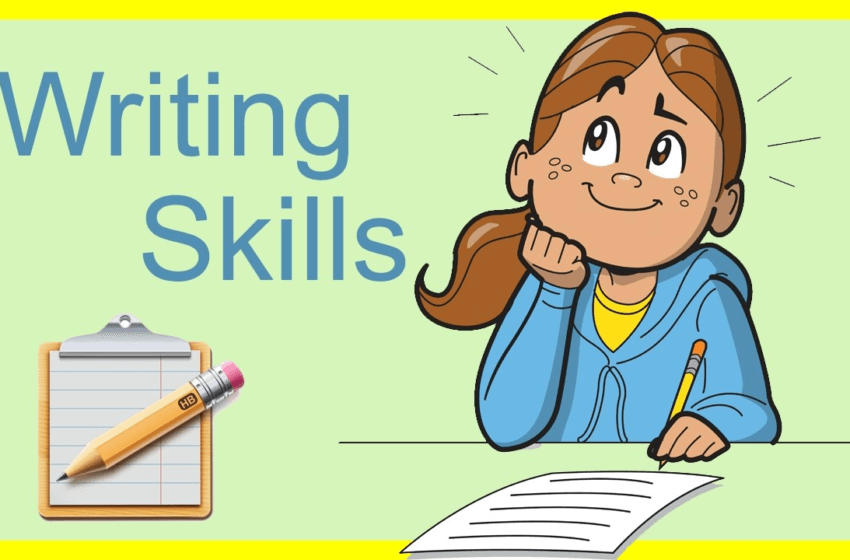
Top Tips to Write a Good Assignment
Writing assignments is a fundamental piece of the academic journey, whether you are a secondary school student or seeking advanced education. A very built assignment not only exhibits how you might interpret the topic yet in addition your capacity to successfully convey thoughts. To assist you with accomplishing academic excellence, we’ve compiled a comprehensive aide with important tips on the most proficient method to write a good assignment.
1. Understand the Assignment Requirements
Before you dive into your assignment, it’s important to completely comprehend the necessities given by your teacher. Carefully review the assignment brief, rules, and rubrics. Make a list of fundamental parts, for example, word count, design style, and explicit inquiries or themes to address. This initial step guarantees that you are doing great all along.
2. Conduct In-Depth Research
Strong research is the underpinning of any great assignment. Gather data from reliable sources, like academic diaries, books, respectable sites, and information bases. Take detailed notes, and guarantee you have a good blend of essential and optional sources, if relevant. Legitimate citations and references are fundamental for helping your contentions and showing your academic trustworthiness.
3. Create a Strong Thesis Statement
A thesis statement is the center of your assignment. It would be ideal for it to be clear, compact, and easy to refute. Your thesis statement guides the per-user on what’s in store and gives a guide to your whole assignment. Assignment help guarantee your thesis lines up with the assignment brief and is supported by your examination.
4. Plan Your Assignment
A coordinated way to deal with writing is critical. Make a blueprint that incorporates a presentation, body paragraphs, and a conclusion. Each segment ought to have an unmistakable reason and stream logically starting with one then onto the next. Your outline can be a straightforward list item structure or a more detailed guide, contingent upon your inclination.
5. Write a Captivating Introduction
The introduction is your chance to catch your per-user’s eye and give a setting to your assignment. Begin with a convincing snare, like a significant statement, measurement, or tale. Then, at that point, introduce your thesis statement and briefly outline the central matters you will cover in the assignment.
6. Develop Clear and Coherent Paragraphs
Each paragraph in the body of your assignment ought to focus on a solitary point or topic. Start with a subject sentence that introduces the fundamental thought, followed by supporting proof and examination. Guarantee that your paragraphs stream logically starting with one and then onto the next, keeping up with the general lucidness of your assignment.
7. Use Proper Citations and References
Academic integrity is non-debatable. Cite your sources accurately utilizing the reference style determined in the assignment rules, whether it’s APA, MLA, Chicago, or another format. Keep track of your sources as you research, so you can undoubtedly give precise references in your task.
8. Maintain Consistent Formatting
Consistency in formatting is fundamental for an expert-looking assignment. Focus on font style, font dimension, line dispersing, edges, and some other designing prerequisites determined by your teacher. Formatting errors can occupy the content of your assignment.
9. Revise and Proofread
Keep in mind the force of revision and editing. In the wake of finishing your assignment, have some time off and afterward return to it with a new perspective. Search for grammar and spelling mistakes, unclear sentences, and any irregularities. Think about looking for feedback from peers, a guide, or a writing place if accessible.
10. Seek Feedback and Peer Review
Getting a second point of view on your assignment is significant. Share your work with a cohort, companion, or relative for their feedback. They might make errors or give ideas for development that you missed.
11. Address the Assignment Prompt
All through your assignment, guarantee that you straightforwardly address the assignment brief and keep fixed on the topic. Abstain from going off on digressions or including irrelevant data. Each word ought to add to the general coherence and relevance of your work.
12. Edit for Clarity and Conciseness
Clarity is key in academic writing. Utilize clear and compact language to communicate your thoughts. Keep away from pointless language or complex sentences. Go for the gold clear correspondence.
13. Proofread for Grammar and Spelling
Try not to underrate the significance of grammar and spelling. Mistakes and grammatical blunders can diminish the quality of your work. Use grammar and spell-really take a look at devices, yet additionally proofread physically, as these tools may not get all mix-ups.
14. Stay within the Word Limit
Adhering to the penalties word limit is fundamental. Going essentially finished or under the word include may result in punishments. Guarantee that your assignment is succinct and direct, eliminating any pointless content.
15. Craft a Compelling Conclusion
Your conclusion ought to rehash your thesis statement and sum up the primary concerns examined in the assignment. Try not to introduce new data in the conclusion. Have the per-user with an enduring effect of your work and its importance.
16. Review and Submit
Before submitting your assignment, take a last second to survey it one final time. Guarantee that all components, including the title, page numbers, and any extra necessities, are set up. Whenever you’re happy with the quality and exactness of your work, submit it as indicated by your educator’s rules.
17. Time Management
Effective time management is vital while handling assignments. Break the errand into reasonable portions, set deadlines for each, and adhere to a timetable. Stay away from the latest possible moment surges by planning greatly ahead of time.
18. Academic Integrity
Plagiarism is a serious offense in academia. Continuously give appropriate references and references to any acquired thoughts or words. Indeed, even accidental plagiarism can have serious results, so be tenacious about citing your sources.
19. Stay Organized
Keep your research materials, notes, drafts, and references coordinated. This will make it simpler to find data when required and guarantee a smooth writing cycle.
20. Seek Help When Needed
Feel free to out for help when you’re stuck. Your teachers, friends, or academic writing centers can give guidance and support when you experience difficulties in your assignment.
CONCLUSION:
In conclusion, writing a good assignment requires cautious preparation, careful examination, and fastidious attention to detail. By following these tips, you can upgrade your assignment writing abilities and make academic progress. Recall that practice and predictable improvement are the keys to becoming the best at assignment writing.




